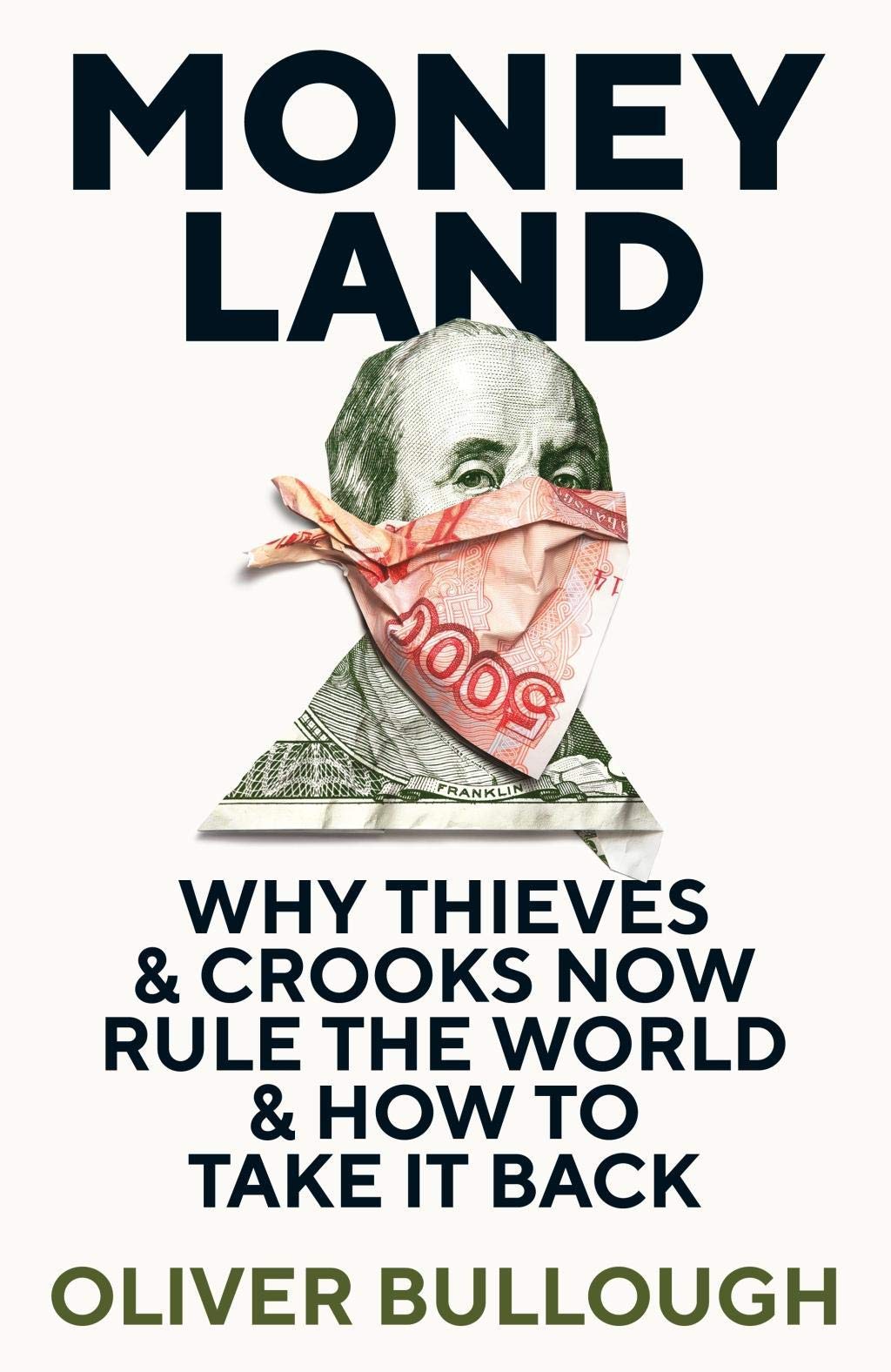

Profile Books Moneyland: Why Thieves And Crooks Now Rule The World And How To Take It Back
M**L
Excellent book
This book explains in detail how utterly corrupt governments are. Corruption proves to be an effective business model all over the world. Greed prevails and crime pays. No illusions left after reading this book.
I**K
book not as expected
not a good read
Ì**Ð
Very boring !
Very boring ! "Laundromat" about Panama Papers is much better
S**E
How the West Shoots Itself and the Rest of the World by Enabling Naughty and Evil People
Moneyland is one the largest economies of the world that almost nobody hears about. Oliver Bullough ranked it recently just behind the American and Chinese economies. However, Moneyland is not a country, but a virtual space made up of offshore structures that represent the dark side of globalization.Moneyland is not about the efficient allocation of money to be expected in a well-functioning capitalist economy. On the contrary, offshore structures allow people to hide their ownership of money, which benefits those with something to be ashamed of. Mr. Bullough subdivides what he calls these offshore bandits into two segments: 1) the tax dodgers (or the naughty people) and 2) the evil people. The end goal of these structures is to gain the greatest degree of protection for that money, no matter how smelly it is. Moneyland continues to prosper because unlike laws, money flows across frontiers.Thanks to the magic of the modern financial system and the anonymity provided by offshore jurisdictions for which money has no smell, offshore bandits are oppressing their subjects without improving either security or prosperity. Unsurprisingly, the casualties of Moneyland are overwhelmingly located in the developing world. Think for example about Nigeria, Ukraine, Malaysia, and Angola. However, Moneyland is also a threat to Western democracies. Mr. Bullough refers for example to terrorism in the West and the interference in the last American presidential election.Moneyland has many enablers besides the modern financial system in the Western world, including in the United States. Think for example about lawyers, consulting firms, lobbyists, PR firms, real estate agents, and the luxury industry in cities such as New York and Miami. These organizations employ many people in both cities. Why should these professionals ask discomforting questions about the origin of their clients’ money beyond what is currently required and losing business to the competition? It is about morality, not about legality, in the absence of any legal mandate about requiring more transparency in conducting these transactions.Furthermore, Mr. Bullough shows clearly how different American states like Nevada aspire to become elite offshore jurisdictions. This type of race to the bottom in the area of transparency makes America hypocritical in insisting on standards overseas that they don’t keep to themselves.To his credit, the author stresses correctly that some people have legitimate reasons to disguise their identity:1) Film starts at risk of being stalked.2) Political refugees pursued by rogue regimes.3) Children with fortune left to them by wealthy parents.What is needed is more international cooperation and transparency. The disclosure of the real owners of offshore structures when conducting certain types of business (above a certain amount) should become mandatory, say in the European Union or the OECD.Finally, Mr. Bullough acknowledges appropriately that the rise of populist leaders like Donald Trump in the United States makes increasing international cooperation and transparency in that area a tough sell for the time being.
H**Y
Read this and Beware
A guide to sanity for all of us in the financial jungle. It was shocking for me to fund names which I have come across in usual dealings
Trustpilot
2 weeks ago
3 weeks ago